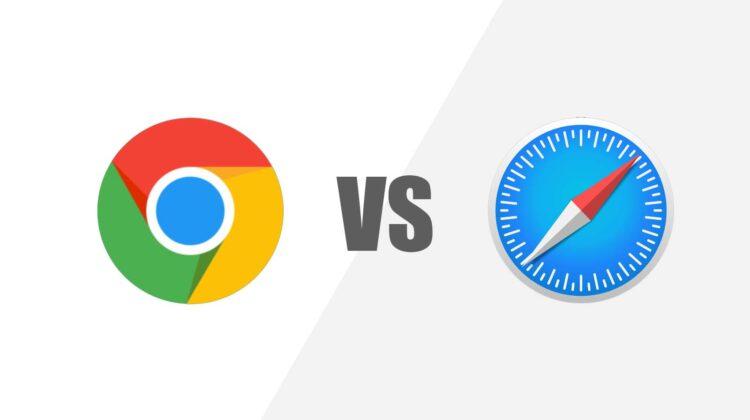
This morning, Google’s Senior Director of Chrome Engineering, Max Christoff announced that the Chrome browser on macOS has reached a new speed milestone. As of Chrome 99, it’s now faster than Safari, according to Apple’s own “Speedometer” benchmark system. Scoring a 300, Chrome is now the fastest and most responsive browser option on Apple’s hardware.
Google goes as deep as it can on each platform to provide a tailored experience specific to that hardware and operating system, and today’s news is no different. In fact, it published an article on The Keyword earlier this year called The Fast and the Curious, where it explored some of these improvements, and even revealed that Chrome had a substantial speed improvement on all major platforms for users.

Speedometer 2.0 comparing Chrome 99.0.4812.0 –enable-features=CanvasOopRasterization –use-cmd-decoder=passthrough vs. Safari 15.2 17612.3.6.1.6 on a MacBook Pro (14″, 2021), Apple M1 Max, 10 cores (8 performance, 2 efficiency), 32 GPU cores, 64gb device.
Data source for Mac statistics
By enabling something called ThinLTO in v99, Google’s engineers were able to make Chrome 7% faster than Safari. Since launching on M1-based Macs a few years ago, the Chromium-based browser is now nearly 43% faster than it was 15 months ago. By combining ThinLTO with graphics optimizations of the pass-through decoder and OOP rasterization, Chrome’s performance is closer to 15% faster than Safari.
So, as you can see, improving Chrome is less about the big moves and more about the small optimizations that add up over time. This has been the case for quite some time with Chrome and other Chromium-based browsers like Microsoft Edge, and their teams continue to work together to improve the code base so that everyone can benefit. To date, Safari is one of the only major browsers that is not based on Chromium (along with Firefox) with Vivaldi, Brave, Edge, Opera, and about a dozen and a half others following Google’s lead to use an open-source code base.
The improvement jumps in Chrome on macOS are not simply a result of the aforementioned ThinLTO and OOP Rasterization though. Earlier efforts like the launch of the new V8 Sparkplug compiler and short builtin calls saw a 23% bump in performance in 2021. Sparkplug is a Javascript compiler that helps to run code quickly while simultaneously optimizing it for performance, by the way. The other thing I mentioned – short builtin calls simply allow the browser to call functions more linearly with less jumping around. Surprisingly, this ended up being more effective for performance on M1-based Macs than on any other chip.
All of this to say that anyone utilizing Chrome on their macOS devices can rest assured that they’re getting a speedy and reliable experience. Obviously, benchmarks aren’t the only way to measure performance, and this small percentage likely won’t be felt by the average user (or probably anyone, really), but it’s something Google was proud of. Creating the best user experience is paramount to their success as the number one browser on the market, and while Safari isn’t going anywhere, it’s still a cool milestone, don’t you think?
Join Chrome Unboxed Plus
Introducing Chrome Unboxed Plus – our revamped membership community. Join today at just $2 / month to get access to our private Discord, exclusive giveaways, AMAs, an ad-free website, ad-free podcast experience and more.
Plus Monthly
$2/mo. after 7-day free trial
Pay monthly to support our independent coverage and get access to exclusive benefits.
Plus Annual
$20/yr. after 7-day free trial
Pay yearly to support our independent coverage and get access to exclusive benefits.
Our newsletters are also a great way to get connected. Subscribe here!
Click here to learn more and for membership FAQ

